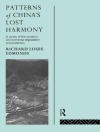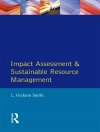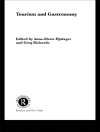‘With clarity and confidence, this vibrant volume summons up ′the social′ in geography in ways that will excite students and scholars alike. Here the social is populated not only by society, but by culture, nature, economy and politics.’
– Kay Anderson, University of Western Sydney
– Nigel Thrift
, Vice-Chancellor, University of Warwick
‘The book aims to be accessible to students and specialists alike. Its success lies in emphasizing the crossovers between geography and social studies. The good editorial work is evident and the participating contributors are well-established scholars in their respective fields.’
– Miron M. Denan
, Geography Research Forum
‘An excellent handbook that will attract a diversity of readers. It will inspire undergraduate/postgraduate students and stimulate lecturers/researchers interested in the complexity and diversity of the social realm…. As the first of its kind in the sub-discipline, it is a book that is enjoyable to read and will definitely add value to a personal or library collection.’
– Michele Lobo
, New Zealand Geographer
The social relations of difference – from race and class to gender and inequality – are at the heart of the concept of social geography. This handbook reconsiders and redirects research in the discipline while examining the changing ideas of individuals and their relationship with structures of power.
Organised into five sections, the
SAGE Handbook of Social Geographies maps out the ′connections′ anchored in social geography.
- Difference and Diversity builds on enduring ideas of the structuring of social relations and examines the ruptures and rifts, and continuities and connections around social divisions.
- Geographies and Social Economies rethinks the sociality, subjectivity and placement of money, markets, price and value.
- Geographies of Wellbeing builds from a foundation of work on the spaces of fear, anxiety and disease towards newer concerns with geographies of health, resilience and contentment.
- Geographies of Social Justice connects ideas through an examination of the possibilities and practicalities of normative theory and frames the central notion of Social geography, that things always could and should be different.
- Doing Social Geography is not exploring the ′how to′ of research, but rather the entanglement of it with practicalities, moralities, and politics.
This will be an essential resource for academics, researchers, practitioners and postgraduates across human geography.
สารบัญ
Introduction: Situating Social Geographies – Susan J Smith et al
PART ONE: DIFFERENCE AND DIVERSITY
Introduction: Social Geographies of Difference – John Paul Jones III
Gender, Race, Sexuality – Linda Peake
Social Geographies of Age and Ageism: Landscapes, Lifecourses and Justice – Rachel Pain and Peter Hopkins
Disability, Health and Citizenship – Muchael L Dorn and Carla C Keirns
Tensioned Landscapes and Contested Identities: Social Geographies of Difference and Relationships between Indigenous and Non-Indigenous Peoples – Audrey Kobayashi and Sarah de Leeuw
Social Collisions – Katie D Willis
Geographies of Affect – Keith Woodward and Jennifer Lea
Assemblage Geographies – Paul Robbins and Brian Marks
PART TWO: GEOGRAPHIES AND SOCIAL/ECONOMY
Introduction: Into the Black Box – Susan J Smith
Economic Society/Social – Roger Lee
Geography Geographies of Financial Risk and Exclusion – Paul Bennet
Emotional Economic Geographies – Nancy Ettlinger
The Limits to Value – David B Clarke
Publics and Markets: What′s Wrong with Neoliberalism? – Clive Barnett
PART THREE: GEOGRAPHIES OF WELL-BEING
Introduction – Rachel Pain and Susan J Smith
Geographies of Well-Being – Robin A Kearns and Gavin J Andrews
Health, Risk and Resilience – Rich Mitchell
Young People, Care and Social Well-Being – Nicola Ansell
Phobias and Safe-Keeping: Exploring Emotional Intersections between Selves and Spaces – Joyce Davidson
Fear and Its Others – Hille Koskela
PART FOUR: GEOGRAPHIES OF SOCIAL JUSTICE
Introduction – Sallie A Marston
Geography and Social Justice – Marv Waterstone
The Spaces of Being In-Common: Ethics and Social Geography – Jeff Popke
Evironmental Justice and The Commons – Richard Howitt and Michael Hillman
Crime and the ′Re-Moralization of City Spaces′ – Nicholas R Fyfe
A Social Geography of Human Rights – Amy Ross
PART FIVE: DOING SOCIAL GEOGRAPHIES
Introduction – Rachel Pain
Participation – Sara Kindon
Relevance – Lynn A Staeheli and Don Mitchell
The Politics and Ethics of Trust in Geographic Research – Kathryn Besio
Quantification – Mei-Po Kwan
Positionalities: It′s Not about Them, It′s about Us – Kath Browne, with Leela Bakshi and Arthur Law
เกี่ยวกับผู้แต่ง
Born in Northumberland and brought up in Newcastle-upon-Tyne, I have lived in the North East for most of my life. I completed my first degree in geography at Lancaster University and Ph D at the University of Edinburgh, then worked as a lecturer in geography at Northumbria University before moving to Durham in 2000. Here, I teach at undergraduate level, supervise Ph D students, and am Co-Director of the Centre for Social Justice and Community Action.
I′m a social geographer whose research is informed by feminist and participatory theory and practice. I work on a range of issues around fear, violence and community safety; emotions and geopolitics; and participatory practice, politics, theory and activism.
My research, teaching and public engagement activities are underpinned by a commitment to social justice. Recently I′ve worked on a number of participatory action research projects in the North East, with partners including refugee-led organisations, youth groups, Rivers Trusts and survivors of violence.
As well as locating my own research and some training and teaching locally outside the University, I am involved in a number of initiatives to encourage two-way research collaborations, including the Centre for Social Justice and Community Action which develops and supports theory and practice around participatory action research at local, national and international levels.
I′m also interested in the challenges that the idea of work life balance presents for academic business and cultures, and in supporting fairer institutional policies and practices for fractional, flexible and non-traditional workers.












